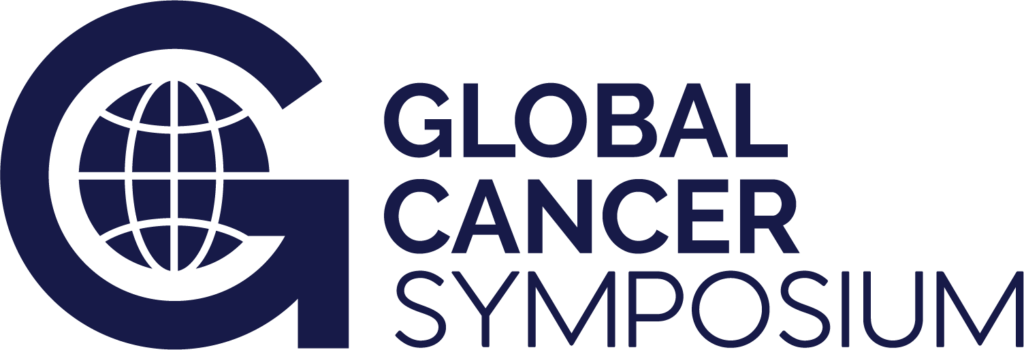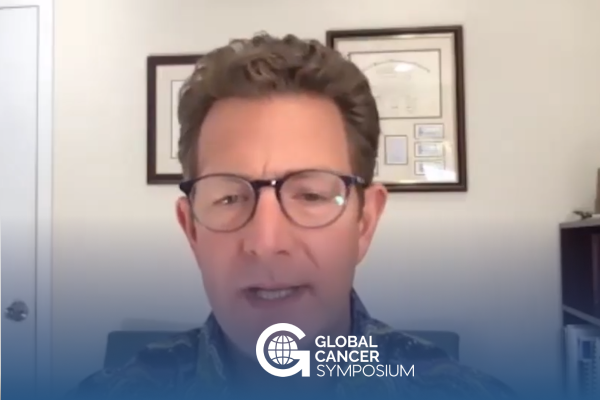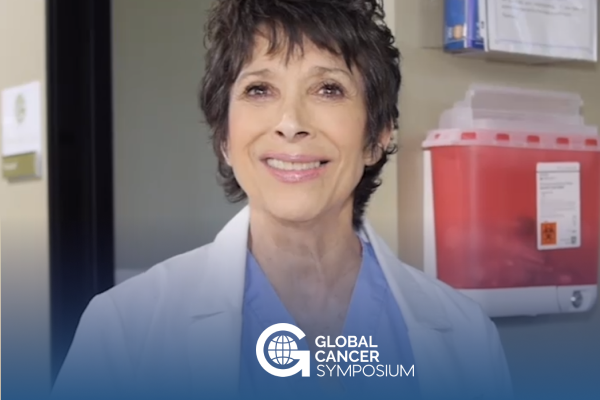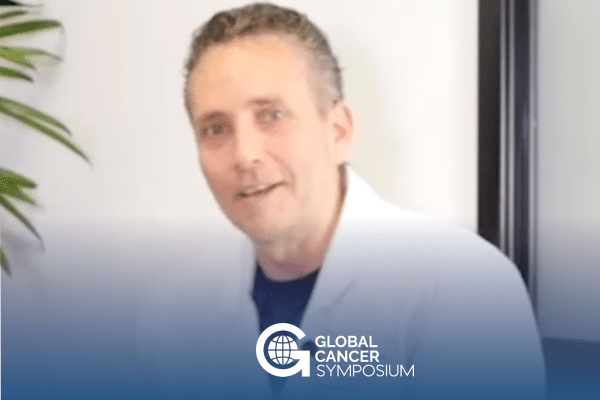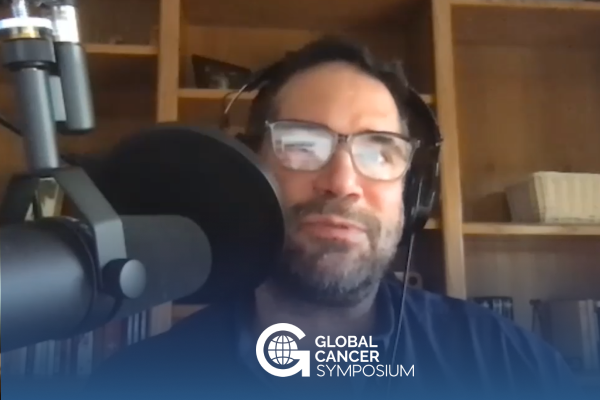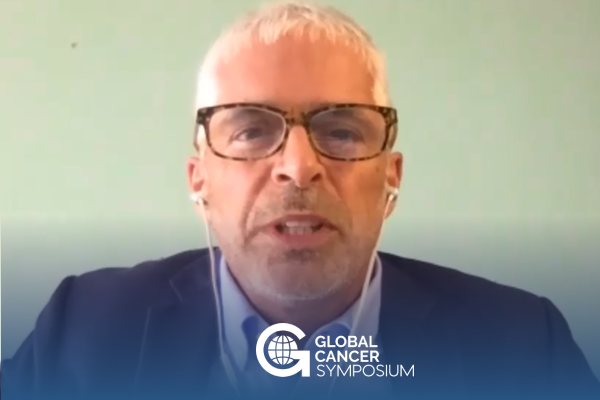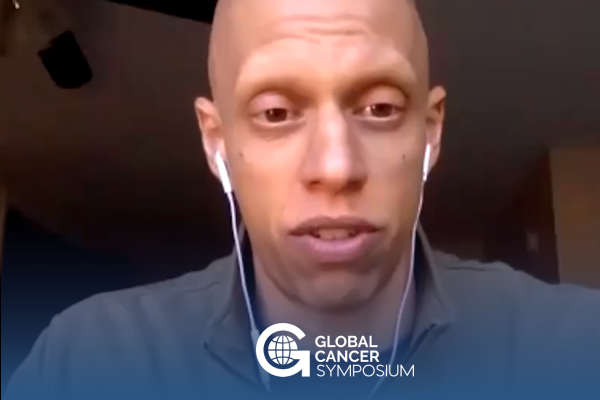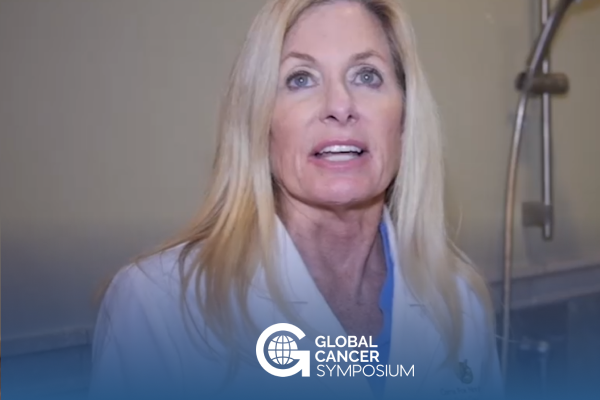Join the discussion below
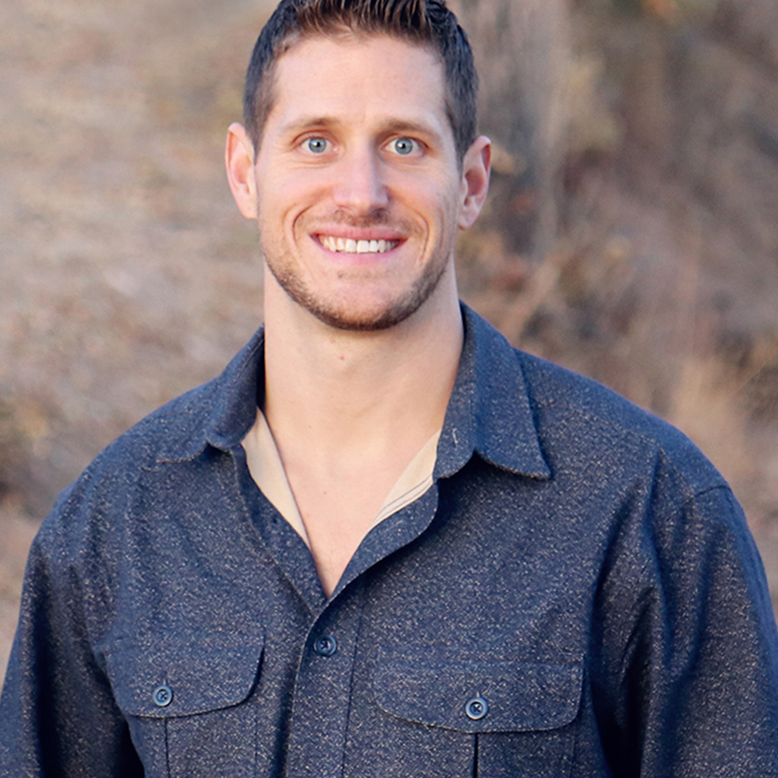
Nathan Crane is an award-winning author, inspirational speaker, plant-based athlete, event producer and 18x award-winning documentary filmmaker. Nathan is the Founder of The Panacea Community, Creator of the Global Cancer Symposium, and Director and Producer of the documentary film, Cancer; The Integrative Perspective. He is also the Director of Strategic... Read More
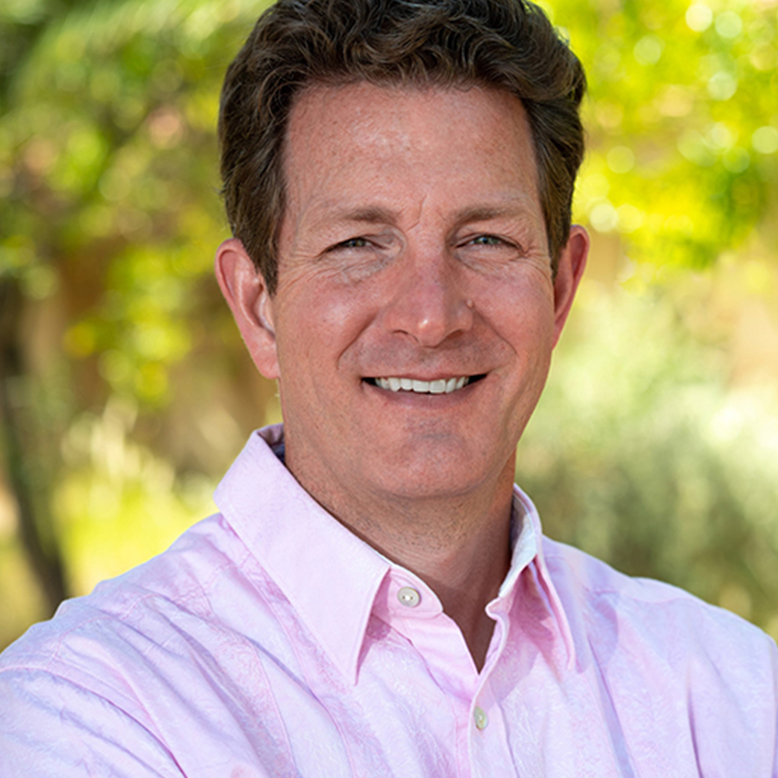
Docēre rāphè: Docēre is Latin for doctor which is translated, teacher. Rāphè is Hebrew for physician which is translated, healer. Dr. Goodyear’s passion for Wellness began with his own 100-pound post-college football career weight loss. Dr. Goodyear is dedicated to disease prevention, disease resolution, and to the Wellness Lifestyle through... Read More
- How to change your genetic expression to prevent cancer
- The evolution of our basal body temperature (and its role in cancer growth and prevention)
- How to control your internal environment to fight off cancer cells
Nathan Crane
Hello, everybody. Welcome to The Global Cancer Symposium. 2.0. My name is Nathan Crane. I am the award-winning filmmaker of “Cancer; The Integrative Perspective,” as well as the director of The Health and Healing Club. You can learn more about that at healthandhealingclub.com. But today I’m really happy to bring you Dr. Nathan Goodyear. And we’re going to talk about prevention, cancer prevention, as well as some of the most effective habits to help you reduce your cancer risk. Now, this interview is gonna be really helpful, whether you have cancer and you’re really, or you’ve overcome cancer, and you’re trying to prevent a recurrence, I should say. Or you have a family member, or a friend, or somebody that you want to share this with, who you’re interested in supporting them in preventing recurrence. Or just you yourself. You want to stay on top of things.
You want to be proactive and you want to prevent, do the things to help you support preventing cancer to the best of your ability. So what you’re gonna learn today is gonna be really practical, and really give you some tools to take away. You can start making some powerful changes to implement in your own life starting today. I’m gonna read you Dr. Goodyear’s bio, and then we’re gonna dive right in and get to some really good nuggets of wisdom I should say, to help you on this journey. So Dr. Nathan Goodyear’s passion for wellness began with his own hundred pound, post-college football career weight loss. He lost a hundred pounds after college football, that’s huge.
Dr. Goodyear is dedicated to disease prevention, disease resolution, and to the wellness lifestyle through a solution-based integrative medicine approach, founded in science. Dr. Goodyear received his Bachelor of Arts from Louisiana Tech, and his Doctor of Medicine from LSU Health Sciences Center. He’s board certified in obstetrics and gynecology. And served as the chief resident obstetrics and gynecology at the University of Tennessee. Dr. Goodyear has practiced integrative medicine since 2006, and is a Fellow in Functional and Regenerative Medicine, and served on the board of the American Functional Medicine Association. Dr. Goodyear is licensed by the Arizona Homeopathic and the Integrative Medical Board in Arizona. He’s also the medical director at in Mesa, Arizona. Dr. Thomas Lodi, who owns , who is in Thailand most of the time, is also a part of this symposium. Make sure you go listen to that interview right after this one. Or if you already listened to it, I’m glad you’re listening to this one as well. And you can find Dr. Goodyear at , anoasisofhealing.com. Dr. Goodyear, thank you so much for joining us.
Nathan Goodyear, M.D.
Thank you, Nathan. Thank you for what you do.
Nathan Crane
It’s my pleasure, and my honor, to have you here with such a prolific background of experience in science, and integrative medicine, and functional medicine. And, I think what you’re gonna share with us today is gonna be really helpful on a lot of fronts. And, you know, I’d love to dive right in. Based on all your years of training in disease prevention specifically, what have you found to be some of the top causes of cancer, right? We’re talking about prevention. We need to know what we’re preventing. Cancer’s an end result, right? It’s a symptom if you will. And so what causes that?
Nathan Goodyear, M.D.
Well, you know, if you look at everything from a cancer perspective, you know, up until about 20 years ago, it was a purely sematic genetic mutation disease. So basically you’re born the cards you’re dealt. It’s like you’re born to be 6’2″, you’re born to be 4’8″, cancer is the cards you’re dealt. Now, what we didn’t recognize at that point was that our DNA, our genetic code, was influenceable. It was malleable. Now you can’t change the genetic code per se, instantly, but you can change the genetic expression instantly. And so things that were born out through history about, you know, diet, exercise, activity, weight, all of these quote unquote lifestyle manners that we grouped together as lifestyle changes. What we’ve discovered here recently is what they’re really doing is they’re working in changing the genetic expression.
So in terms of preventing diseases, you acutely said, is that a lot of the same therapies that we’ll use in the treatment of cancer, obviously more aggressively, more targeted, we’re gonna use them to prevent cancer. Perfect example is there was a study from earlier this year, looking at three groups of people and their basal body temperature. First was around, it was Civil War veterans, then it was the mid ’70’s, and then it was 2000’s. And what they found in these three people groups, amazingly enough, they actually found a thermometer, some thermometers back from that post-Civil War era. And they were able to calibrate them and make sure they were accurate. But what they were able to find was that in these three groups, the basal body temperature of the adults decreased. Decreased predictably, consistently, but decrease from 98.6 degrees in the post Civil War to 98 degrees in the year 2000.
So when we talk about 98.6 degrees, the basal body temperature average, well, that was correct 150 years ago. It’s not today. So basically lifestyle changes and all these metabolic things that integrative medicine talks about. They are the driving forces to prevent chronic disease like cancer, but they’re also the driving forces to prevent other diseases like diabetes, hypertension, cardiovascular disease. But they are also the means to attack, to work to heal the body at the same time. So lifestyle choices like nutrition, like exercise, like stress, like hormones. So thyroid, everybody talks about thyroid. But what I’m talking about here is how it actually generates heat through the mitochondria. And that’s probably what we’ve seen over that 150 years is that we’ve seen a decline in the basal heat production. And out of that, we’ve seen a inverse increase in things like cancer. And in many cases, for example mistletoe.
Mistletoe is a treatment, it’s been around for 100 years. Standard of care in Europe, not so much here in the US, they just haven’t read the science yet, that’s all. But that therapy is a therapy born out of generating warmth, out of generating heat. When you look at what I think is one of the many, very important answers to cancer prevention and cancer treatment, it’s the immune system. And one of the cardinal symptoms of the immune system and its effects is heat production. So lifestyle changes that we just discount and look at them as it relates to being overweight or not, those are the same ways that we can attack the prevention of cancer, but also the treatment of cancer.
Nathan Crane
So what you’re saying is, this is the first I’ve actually heard this, which is pretty mind blowing. Is that our average body temperature, since after, you said the Civil War?
Nathan Goodyear, M.D.
Yeah, it was Civil War veterans.
Nathan Crane
Has decreased 0.6% and that’s directly associated with an increase in cancer risk.
Nathan Goodyear, M.D.
Well, it’s decreased points, 0.6 degrees,
Nathan Crane
0.6 degrees, yeah.
Nathan Goodyear, M.D.
But it’s a consistent decline. But, when you look over that same timeframe, what you see is an inverse increase in diseases like cancer. And what we know about cancer is that it’s gonna be associated with a lower metabolic rate. It’s gonna be associated with a lower energy output. I mean, there’s many different causes of cancer that have to come together, like a 5 billion piece jigsaw puzzle. But one of those is metabolic dysfunction. And out of that, and mitochondria, you’ll get lower energy and heat output.
Nathan Crane
So I want to go into more depth in that in a moment. But I want to go back to what you said earlier about genetic expression, right? ‘Cause this is such an important thing, I think, for people to understand. Because you have these oncologists that a woman has a BRCA1 gene and they’re saying, “Cut off your breasts to prevent cancer,” right? Or they’re saying, “Oh, you know what? You have a cancer gene, you’re gonna get cancer.” And people have this thought that, “Oh, it’s because it’s in my family. Oh, it’s because it’s genetic.” But what the evidence actually shows, at least what I’ve found, and I love for you to expand on this, and correct me if I’m wrong, but actually most cancer is, you know, less than 3% genetic. Meaning that 97% of cancer can all be related to lifestyle choices and lifestyle habits.
Nathan Goodyear, M.D.
Yeah, I think the good way to look at it is it’s an assessment of how your genetic code, and the expression of it, is interacting with the environment that’s in your body. When you talk about lifestyle, what you’re really talking about is affecting the environment in your body. You know, when we talk about toxins, and toxicants, we’re talking about how they’re changing the environment of the body. And in the changing of the environment in the body, with that context of a small percentage that is actually genetic mutation, somatic, but that’ll vary from cancer type to cancer type. Some of the earlier manifestation of cancer, so maybe a childhood cancer, or a teenage cancer, you have a little bit more of a stronger genetic component. But most middle-age and later adult cancer types, you’re looking at actually a environmental, a terrain, a body change as a result of lifestyle over the years, that interacts and changes genetic expression.
When you look at cancer, it’s really interesting. Cancer is going to manipulate its environment for its own survival. It’s like a parasite in a way, it behaves like it. It’s like a virus in a way, it behaves like it. But what it’s doing is it’s taking its environment, and using its environment to feed itself and support its own survival. And ways that it will do that are through changing genetic expression. So getting back to prevention, diet. We all know that, hey, eat your vegetables. There’s a study out there that they actually looked at what’s called microRNA. So it’s a small fraction of RNA, which comes from DNA. They followed that from broccoli through the gastrointestinal tract. And were able to show that this actually gets into the bloodstream and turns on and off certain estrogen metabolization genes.
So don’t be surprised if you eat Twinkies, and drink Cokes, and ding-dongs, if you start to look and feel like one. We talk about food being, you know, soul food, really it’s DNA food, but it’s expression of your DNA. So when you eat greens, we do a plant-based diet here in An Oasis Of Healing. When you eat a plant-based diet, you’re basically, it’s a love language with your genetic expression. It’s what it really is. And so it is intimate to the prevention of cancer, and any other chronic diseases of aging, but it’s also intimate, and necessary, in the treatment.
Nathan Crane
Well, we were emailing back and forth a little bit about today’s interview ahead of time. And one of your responses to something I’d mentioned was, “Immune system, immune system, immune system,” right? And that’s both in regards to people who have cancer, as well as people wanting to prevent cancer. And you talked about plant-based diet. Can you talk a little bit more about how the immune system plays its role in the prevention of cancer and how the plant-based diet supports that?
Nathan Goodyear, M.D.
Yeah, I mean, when it comes to cancer, the way conventional medicine, and I’m conventionally trained, and it’s really interesting when you look through the science, the science is what drives us practitioners to the natural. I mean, the science is what drives us there. It’s not that we go there and the science catches up with us. But when you look at what the body does, the body’s created to heal itself, the body’s created to protect itself. And one of the key components of the body’s ability to promote its survival, is the immune system. The immune system is designed to protect the body against foreign invaders, bacteria, viruses, parasites, but it’s also designed to protect us against domestic enemies. And that’s things like cancer. So when you look at the immune system, most people probably heard that, “Well, everybody has cancer cells.” Well, why do we not all have cancer? Well it’s because our immune system is identifying, is tagging these cells, and it’s eliminating them.
When cancer develops, the problem is that cancer co-ops that defense mechanism, and uses it to support itself, actually turns the immune system on itself, so that it can actually survive, thrive, and spread. It is key to the prevention. And it is key to the elimination. I tell people that the best answer for cancer is never get it, never get it. Lifestyle changes, all of these things that we talk about are important and key to that. But even in taking those steps, we see people all the time come in, and they just, they go, “I did all these things, I’ve eaten healthy, I’ve exercised. But I had this stress, I had this, I had that.” You can’t live in a bubble, it’s life. The answer there, when you have cancer, is the immune system. It’s not chemotherapy, it’s not surgery, it’s not radiation. Now you got a tumor that’s impending on life-vital organ, you gotta do something, okay. But the answer is the immune system in prevention, and in the treatment of cancer.
Nathan Crane
So you mentioned already a little bit about the immune system’s role in identifying, and targeting, and basically removing these cancer cells, right? It happens a lot through the lymphatic system, also through our microbiome and so forth. We’ve done a really great talk with Dr. Tom, as part of this series. I encourage people to go listen to “All About the Microbiome,” and its role in immunity, and in helping to prevent and reverse cancer. But maybe you can talk a little bit more about how, and which plants, are more effective. All plants, right, have some role, but maybe in terms of a plant-based diet, what do you guys teach your patients there at the center to help the body basically do its natural function of eliminating these cancer cells.
Nathan Goodyear, M.D.
There’s a lot of different plants, plant-base therapies that can be used in diet. Obviously everybody focuses on things like curcumin, rightly so, first. It’s a spice, actually been in an Ayurvedic medicine for thousands of years, actually turns off inflammation, but it does more than that. In cancer, there’s a very significant, chronic inflammatory response that is turned on that never turns off. Inflammation is not bad, and I think that’s really important. I think ’cause so many people talk about inflammation and cancer, they get lost that inflammation is necessary. If you’ve ever had a paper cut, you understand why. But curcumin comes in and really turns off this chronic, aberrant inflammatory process. So there’ll be this genetic coding called, NF kappa B, gets turned on, curcumin comes in there, and turns that off. But then as cancer starts to establish itself, curcumin can actually be used as treatment. But as a prevention, it’s key in controlling that chronic, and out of control inflammatory process. So it’s great, great, great in prevention, but it’s very effective in the treatment.
Nathan Crane
How do you take it? ‘Cause I’ve heard that, if you’ve taken turmeric, for example, your body only absorbs often like 30% of their curcumin from the turmeric, is that accurate? And how do you have your patients take it?
Nathan Goodyear, M.D.
The bioavailability of curcumin, turmeric is the source of curcumin, so it’s a root. It’s bioavailability gastrointestinal is very poor, just like vitamin C, very poor. So you want to, you want to dose it frequently. You want to dose it aggressively in dose. And typically if you can get a lipophilic form that will help.
Nathan Crane
Like that liposomal technology, basically.
Nathan Goodyear, M.D.
Exactly, it helps. But just like with vitamin C, what you have to do is you have to dose frequently. When you look actually at the studies, there’s a lot of studies on curcumin, and its anti-cancer effects. But if you actually just take the dosing required, based on the studies, based on the weight. At one point in my career, I was giving people 32 capsules a day just of curcumin, eight grams a day. Is what the literature was showing was an effective treatment. So obviously there’s limitations that the delivery method provides, so through the gastrointestinal system, so what you can do there is just the best you can. What I tell people is definitely take curcumin supplements. If it’s lipophilic, that’s gonna help, but just put it on everything. You have a salad, just put curcumin all over it. So for me, I just put it on everything that I eat, everything.
Nathan Crane
Tinctures as well, ’cause obviously if you overdo it on the capsules, you’re loading your gut up with all the plant cellulose capsule stuff too, right? Which is not ideal.
Nathan Goodyear, M.D.
However you can get it in, and the frequency. That’s the other thing, with its poor absorption, and bioavailability, it’s just the regular delivery that you.
Nathan Crane
Like five times a day, or what does that look like?
Nathan Goodyear, M.D.
Yeah, when I was giving these patients 32 pills a day, boy, that upset their stomach quite a bit. I had ’em taking that four times a day, just so that they could get in. So they were taking eight capsules, four times a day. I don’t encourage people to do that. So please don’t, don’t get me wrong there, but it’s trying to get it in at a frequency that you can do that you tolerate. But yeah, tinctures would be great, too.
Nathan Crane
Yeah, I have a powdered tea that I make in the morning. And it’s just powdered organic turmeric. Put it in and then I’ve got a liposomal CBD, turmeric combination that’s really powerful. Yeah, I love what you’re saying. Just as many different forms as you can. I take it and some capsules as well, even though I’m reducing capsules, just because I’ve been taking too many in general.
Nathan Goodyear, M.D.
That’s why I tell people just put it on your food, or put it in your milk nut in the morning, you know, nut milk in the morning, or in the afternoon. So lots of different ways that you can do that. I prefer people to eat their medicine.
Nathan Crane
Yeah, talk more about that. Can you talk more about that? Because often we find, you know, if we’re trying to prevent cancer, or even someone who has cancer, it’s like we’re often looking for that magic bullet, that one pill, that one treatment, that one thing. Though, diet and nutrition is a lifestyle change, right? It’s like if you want to eat a plant-based diet, a vegan diet, a raw food diet, you have to learn how to do it. And how to change what you’re eating, and also understand the underlying principles of what actually makes that diet healthy for you or not. So I know you guys have, you still have classes there with your patients?
Nathan Goodyear, M.D.
Oh, yeah. Curcumin is just one of those. Obviously the cruciferous vegetables, the Brussels sprouts, the broccolis, you know, these are a mainstay in our diet. Brazil nuts, selenium people go, “Well, why the broccoli, why the Brussels sprouts?” Well, these greens turn off oncogenes. Oh, people go, “Oh, oncogenes, I think I’ve heard that.” That is when, many cases in cancer, through this morphology, and transformation that these cells will undergo, they will turn on these oncogenes. In many cases, it’s because it’s an adaption to its environment, that is within the body. So things like broccoli, and Brussels sprouts will turn these oncogenes off. They will also turn on what are called tumor suppressor genes. Roughly 70 to 80% of cancers are p53 positive cancer types.
Meaning that’s a tumor suppressor gene that gets turned off. But more than just interacting with the genetic expression, which in and of itself is mind blowing, that what we eat is actually telling our DNA to express something or not. It’s actually looking at things like breast cancer, and colorectal cancer. It’s interacting with the estrogen and hormone metabolism. I mean, everybody knows that as it relates to breast cancer. And they go, “Well, I’ll go take a capsule of Dem, or Indole-3-carbinol.” And those are all great. But it’s like, you know, it sure tastes a lot better if you just eat Brussels sprouts. If you just eat broccoli, cabbage. Those are the vegetables that will give you what you get in that Dem, and Indole-3-carbinol, but it just tastes better. Now the problem then comes in when you have cancer, is your stomach can’t hold enough broccoli, and Brussels sprouts to give you what you need. But if you’re talking about it from prevention, oh, absolutely, that is the way to go. But it’s paramount in the treatment, we just typically have to add more on top of that.
Nathan Crane
And you’re doing that through fresh green juice, through IVs, through what other forms?
Nathan Goodyear, M.D.
Yeah, we still have the courses that we do every morning, interactive with our patients. We actually have them prepare some of their own food. Of course, nutrition is key. I talked to ’em about that. Our, naturopath talks about that. People in the kitchen do that. We do some green juice every day. We want them to do one to two quarts fresh, very important, fresh. And then what you put in there is very important. And then where we identify, based on testing, that they need extra support, specific to their cancer type. Then that’s where we’ll come in with very specific supplements, herbal extracts, tinctures, to really take it to that next level. But yes, we do do IVs as well with those where we need to, and where indicated, to just take it to a whole ‘nother level.
Nathan Crane
So, what does the science say about some of the most toxic foods that people should avoid if they want to prevent cancer?
Nathan Goodyear, M.D.
I think people inherently know. They know that if they drive 120 miles an hour on a windy road, that’s not a good, smart move when it’s snowing.
Nathan Crane
Let alone, if it’s not snowing.
Nathan Goodyear, M.D.
Yeah, that’s right, that’s right. Yeah, cause we sure don’t get that here. But people inherently know the foods that are healthy, and those that are not. It’s interesting, we got a fast food hamburger sitting in our didactic, so in our teaching room for our patients where they have classes every morning. And it’s been there for several weeks now.
Nathan Crane
Geez.
Nathan Goodyear, M.D.
And so we’re gonna leave it there as long as it needs to stay there before it starts to degrade. But you can see the cheese, you can see the bread, you can see the meat. It hasn’t changed in two weeks.
Nathan Crane
Oh my God. That is scary.
Nathan Goodyear, M.D.
But that’s not even food, okay. But if it grows out of the ground, if it’s from the earth, then it’s something that’s healthy. Our bodies were designed to interact with this historically, epigenetically, our jaw structure, all of this is born out of our surrounding environment, not just inside, but outside. So if it grows out of the ground, it’s from the earth, that’s something that we need to be eating. And the more plant-based we do, the better. Things like, you know, like I mentioned earlier, Twinkies, Ding Dongs, Cokes, look throughout nature. What do they drink other than water, and milk at birth? That’s it? What do we drink? No water, Coke, tea, it’s everything else. So we are a product of nature, just as they are a product of nature.
And so looking at us and saying, “Well, we can not drink water, and drink Coke, and have wine every night,” and think that that’s not gonna affect us, but we’re just playing ourself for a fool. So look at what animals do. We’re not completely plant-based, but for the treatment of cancer I advocate that. And I advocated for the prevention of it as well. But eat a plant based diet. The foods that are inerrant that are gonna lead to disease, and cancer, are gonna be your fast foods, it’s gonna be your heavy, red meat production intake. It’s going to be the sugars, the high, simple carbohydrates, the trans fats, everything that we get through the TV, through the fast food restaurant, that’s what we shouldn’t be eating.
Nathan Crane
You know, I grew up on, you know, steak and potatoes in Bozeman, Montana, you know, we’d go hunting and fishing. And from that to actually eating a lot of fast food growing up as well. You know, my mom cooked from time to time, but then a lot of times we’d be eating at McDonald’s, and Burger King, and Taco Bell for lunch every day. And all of this fake, processed food, which over time made me quite sick, and unhealthy. And it was right around the time my daughter was born in 2009, 2010, that we decided to go to 100% plant-based diet. We did 100% raw food for a year as well.
Because all the data, all the research, and all my own internal experimentation, and my own intuition, and reasoning, and so forth, said, “Look, this is the best diet for living long and healthy. And so since then, we’ve been, we’re not a hundred percent raw anymore, but we’ve been a hundred percent plant-based, primarily vegan. And you know, my daughter’s 10, my son is 5, and my wife, and all of us have been plant-based since that time, and are healthier, and feel better, sleep better, digestion issues healed, all kinds of things. But someone who grew up in Montana on meat and potatoes, you know, I hear this argument for paleo, this argument for Hunter-Gatherer, this argument for, “Yeah, but we’re supposed to eat meat because our ancestors ate meat.” And maybe you can talk a little bit more about that, and what the science tells us about eating meat.
Nathan Goodyear, M.D.
Well, it’s interesting. They say our ancestors ate meat, and they did, not denying that. But they didn’t sit on their backside for 8 to 10 hours a day. They didn’t, you know, they slept when the sun went down, they woke up, and worked very hard when the sun came up. Yes, they had stress, but like a gazelle running from a lion, they either became dinner, or they got away. So the stress was short. It was intense, but it went away. So you can’t look at that and say, “Well, they did this.” Well, I’m sorry, the environment we live in is different. They didn’t deal with the environmental toxicants we have. So you can’t say, “Well, they did this. So, thus, we should be able to do this.” We’re having to counter all the other things that we deal with on a day-to-day basis. You don’t sleep well, your melatonin doesn’t normalize, your immune system’s compromised, your cancer rate goes up.
Studies on nurses working night shifts, flight attendants, and pilots flying transatlantic flights. We know that that is a key cancer causing agent, not sleeping at night, low melatonin. That’s why we do high dose Melatonin as a part of our therapies. Well, when the sun went down for them, they would sleep. So they weren’t dealing with that context. So we’re trying to counteract all these other changes in our environment. And that’s really what the plant base, and you’re exactly right about the raw. And that’s what we do for our patients when they come in here. That plant-based, raw diet is to really, very quickly to use these therapies as really medicine. To counteract a dysfunctioning body.
So we have to push very hard. We can’t just say, “Well, let’s just reduce our red meat.” No, we have to push hard in our patients that come in here. So the plant-based diet is key, the raw is key. But it has to be taken in the context of the whole of the environment. You know, they weren’t 350 pounds. You know, talking about food, you know, talk about fast food in high school. I can remember, I’d go with three of my offensive line buddies. We’d go to McDonald’s, I hope I could say that, and they had 99 cent Big Macs. And this was when I was 16, young and stupid. We’d buy four, we downed those puppies in about 15 minutes. But, but you know, when I got through.
Nathan Crane
And then you were sick for the next two hours.
Nathan Goodyear, M.D.
Oh, I didn’t know what I was doing to my body. But when I got through with football, ‘Cause I played at about 290. Two of the guys I played football with, died within seven years from massive heart attacks. And so I knew that I had to make a change there. And a move to the plant-based diet was natural. Honestly, it was what I was craving. You know, people think that cravings have no bearing on your health status. No, your body’s gonna make you go crave the things that it needs. So, yeah, so the raw food, plant-based diet. It’s interacting, and countering all those other, all that other crap that we’re dealing with our environment that they didn’t have to deal with. So the argument is correct, but it’s out of context.
Nathan Crane
Yeah, I love how you presented that. And you know, it made me think of a couple of things as well. Is if you look at a lot of our ancestral communities that date back thousands, tens of thousands of years. You know, a lot of them, at least what our science is saying today, is many of them didn’t live past 35, 45 years old anyway. So that’s one takeaway, right? That I think we should learn something from. And if you were Hunter-Gatherer at the time, there’s not enough hunting, I think, to go around where you’re gonna be eating lots, and lots of meat all day long, every day, right?
Because it’s really hard to hunt animals that run longer, and faster than you do. Whereas, gathering, and even now, there’s a book that Gregg Braden wrote that I read a few years ago called, I believe it’s called “Deep Truth.” And there’s a scientific discovery in there of a new civilization, an ancient civilization, that was newly found in the last, I believe 15 years potentially, that dates back somewhere around 15 or 17,000 years old. It was really fascinating about this, that has made me think more about, and confirm more about, yes, plant-based diet is the ideal diet for human beings. They never found a single weapon, or hunting tool of any kind in this quite advanced civilization. That had built, you know, their own lodgings. And they believed even were growing food and things like that. Agrarian 17, 15 or 17,000 years ago, which they believe, until now our historians and scientists didn’t believe that people didn’t become agrarian and grow their own food. And they were a Hunter-Gatherer until much later than that. So anyway, that’s just a really, I think just another confirmation, validity to the point that you’re sharing.
Nathan Goodyear, M.D.
History will teach us so much if we’ll listen to it. I mean, it really does. And you know, you brought up an interesting visualization. I was thinking of just like the average adult male today chasing a gazelle, you know, trying to hunt it, and I was like, “Yeah, our ancestors probably would have done a much better job. We would all end up with heart attacks.” But they also did a lot of fasting. And that’s also a big part of what we do here. I mean, if there’s a therapy that’s more effective than fasting, I’m not aware of it. So, but they did it because food sources weren’t available. There were famines, there were regular fasting just because of crops, because of not available to access game that they were hunting, or whatever.
So what we try to do also is reincorporate that component of diet into their daily living. Now we’ll use it very aggressively as therapy as well. I mean, for days and days on end. But you can’t really do anything else there, if that’s all you’re doing. And I wouldn’t advocate people to do water fasting without a physician guidance beyond just a day. Because it can be incredibly hard on the body. But one of the things that they did, not intentionally, was that fasting. And that also too is incredibly powerful in helping the body to clean itself up. Scavenger, get rid of all the junk, and then renew itself. And it actually has a name called autophagy, but this is where the body just goes in and says, “I just don’t need this anymore. I’m a clean it up and get rid of it.” So it’s like a good spring cleaning every week or so. And that is critical to prevention and the treatment of cancer.
Nathan Crane
Yeah, I was gonna ask you, what does an ideal fasting regimen look like for somebody wanting to prevent cancer?
Nathan Goodyear, M.D.
Yeah, there’s a lot of different ways to do that. If you’ve never been exposed to the process of cancer, I mean of, I hope nobody wants to be exposed to that, but be exposed to the process of fasting. I’d recommend people start off with just kind of like intermittent fasting. So taking, you know, about six hours of the day to put your eating in to 12:00 to 6:00, and then take the other remaining hours of the day and just drink water. So I think that’s a good way for people to start off and experience it. If you can’t do the six hours, you know, just, so an 18 hour fast, then do 10.
Just find your happy spot and just slowly build your way up. Many different cultures, fasting’s already a part of their environment. And so I can tell ’em, “Hey, do water fasting 24 hours, once a week.” No problem. But if you take the typical American and say, “I want you to do water fasting one day a week,” they’re gonna go, “Well, you mean don’t eat anything?” It’s like, “Yeah, just drink water.” They’re like, “Is that healthy?” Oh, you bet, you bet. I recommend people start off in a prevention standpoint if they’ve not really used that. Use it in the intermittent fasting and then build yourself up to a one day of fast a week. Cultures have done this for thousands of years. They would water fast regularly as a part of religious ceremonies. And so build yourself to a once, you know, intermittent fasting to once a once a week, one day a week. And then build into once every three to six months. We can do a three-day water fast. Obviously I think it’s important to have a doctor involved and make sure there’s no unknown issues in your body, kidney dysfunction, et cetera. But you can really be doing some regular spring cleaning throughout your body by just doing that alone.
Nathan Crane
Yeah, intermittent fasting is huge, right? And I think that the data is like, 12 to 14 hours is kind of like minimum to start really getting the detoxification benefits and some of the ketosis benefits and so forth, right? But, as you said, that can be really hard for people at first to go 12, or 14, or 16 hours. But try it, as you’re saying, just start doing it. You know, I’ve been doing fasting and cleansing for over 10 years. Well, 12, 13 years, 14 years. I’ve done all kinds of cleanses and fasts, up to 21 days. And one of my favorite things, I’d love to hear your thoughts on this is, to go for a week or two weeks, you know, kind of 10 days I find is like a sweet spot, but I’ve gone up to three weeks, of like green juice feasting, right? So you’re fasting from everything else. But you’re loading your body.
Nathan Goodyear, M.D.
Have you been a patient here? Have you been a patient here?
Nathan Crane
I’ve been a student of Dr. Loti, and a student there, I’ve actually visited you guys’ amazing healing center and I’ve learned a lot, but yeah. So I love juice feasting, green juice feasting.
Nathan Goodyear, M.D.
Yeah, juicing is incredible. First of all, it’s gonna, if your bowels are, if you tend towards constipation, it’s gonna definitely help take care of that. It’s going to basically get the lead out, if you will. But yeah, I think mixing in the juicing with the fasting. Oh, there’s that is like, you know, people want to take vitamins. That is like the, the ultimate vitamin. Not just for your physical body, but for your soul. I mean, I drink a quart every day, a quart every day.
Nathan Crane
That’s fresh green juice?
Nathan Goodyear, M.D.
Fresh green juice.
Nathan Crane
What are your favorite, what’s one of your favorite recipe?
Nathan Goodyear, M.D.
Well, of course we have our recipe on our website. So go to our website and check it out, little shameless plug there. But I like to, my wife’s from Louisiana, so I like to spice things up a little bit. So I like to take that and add some jalapenos to it. So that’s my favorite recipe. We got the little green apples, the cucumbers, the kale spinach. And then I like to throw some jalapenos in that. And for me that, that extra spice, sometimes I like to add some ginger in there, but I like things spicy. So that’s kind of my favorite recipe.
Nathan Crane
So, fresh green juice every day, intermittent fasting at least once a week, work up to a one day fast, water fast, or green juice fast every week. These all great. You know, and the other prevention protocol you’ve shared is plant-based diet, right? Adding more and more fresh plants to your diet. You shared a lot about turmeric, curcumin, adding that in higher doses. As we wrap up here what other, maybe one or two, top prevention protocols would you recommend to people?
Nathan Goodyear, M.D.
Yeah, these are gonna sound, “Oh yeah, I’ve heard that,” but it’s very important. Cancer is a state of dysfunction, but also a state of deficiencies. Vitamin A, vitamin D, vitamin C. These three very powerful vitamins are always deficient in cancer, always. And so what I would say is make sure that your vitamin A, vitamin D, and vitamin C levels are adequately supported in your diet and your lifestyle. So obviously vitamin D, get out and get in the sun. You know, talking about our ancestors, my father-in-law’s 88 years old. He doesn’t have skin cancer and he worked every day of his life. He never had skin cancer. So we need to expose ourselves to the sun. But we also have to recognize that there’s a limit and a time that we need to protect ourselves against that.
So vitamin D, vitamin A, you get that in your diet. So, you know, get that in your diet, through the green and non-green vegetables. Obviously you eat a plant-based diet, you’re gonna get all these vitamins there. You’re going to get it by exposure to the sun. And in vitamin C, cancer is essentially metabolic scurvy. Your vitamin C levels are going to be depleted, and that is going to compromise your immune system, just like with vitamin D will. It’s really interesting if you look at the COVID issue, vitamin D, and vitamin C have both been shown to be effective in counteracting the inflammatory response in the cytokine storm that happens. That same process happens in cancer. That same immune burst happens in cancer. So vitamin D, vitamin C are critical. Obviously, vitamin C, you get that through your diet because we don’t make vitamin C. Our bodies cannot make it. We lack an enzyme to do that. So we have to eat that in our diet and a plant plant-based diet. Some fruits are going to help us to achieve that.
Nathan Crane
Well, that’s the thing. You can’t get those vitamins, those essential vitamins that you need from animal products, right? You don’t get ’em from meat. You have to get ’em from plants.
Nathan Goodyear, M.D.
That’s right. That’s the foundation, if you look at it, the plant, it’s like the foundation of a home. And our body is the, you know, two story home. Well, if you have a weak foundation, it doesn’t matter how beautiful that kitchen or second story balcony is. It’s going to collapse. The foundation is that plant based diet. That’s the foundation. That’s where all of these critical minerals, vitamins, we haven’t even talked about zinc and selenium. How they are what build our immune system, keep it strong so that our bodies can fight off enemies, both foreign and domestic.
Nathan Crane
Well, Dr. Goodyear, I just want to say thank you so much for sharing all this great knowledge and wisdom for us. Thank you for the great work you do. I do encourage people to check out An Oasis Of Healing. It is an incredible center, if you’re looking for an integrative, truly integrative approach, to not only transform your lifestyle habits, but maybe help a loved one through cancer. Look him up,anoasisofhealing.com. Yeah, Dr. Goodyear, thank you so much. Appreciate all that you shared with us here today.
Nathan Goodyear, M.D.
You bet, thank you for the opportunity, Nathan.
Nathan Crane
Yeah, my pleasure. And I want to thank all of you for tuning in here to the Global Cancer Symposium. Make sure to share this interview with anyone who needs this life-changing information. Make sure to visit anoasisofhealing.com. You can learn more about working with Dr. Goodyear and his team there in Arizona. Also, I encourage you to visit healthandhealingclub.com to join the global membership dedicated to helping you get and stay healthy. Again, I’m Nathan Crane. I wish you ultimate health and happiness. Take care.
Downloads
